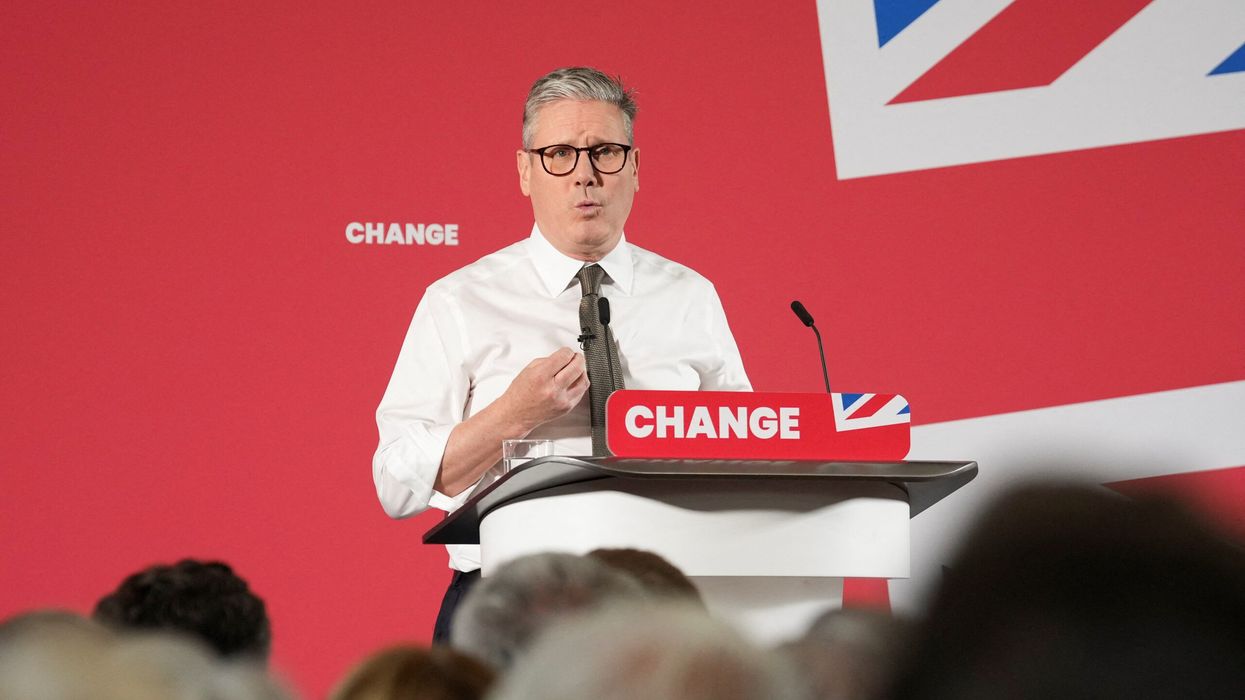by LAUREN CODLING
INTERNATIONAL WOMEN’S DAY (IWD) is a “stark reminder” of how much more needs to be done to address equality, a leading campaigner has said, as a report found only six countries in the world provide equal rights for both genders.
Activist Gina Miller told Eastern Eye on Tuesday (5) that women are central to global peace and prosperity.
Her comments came ahead of IWD on Friday (8) as a World Bank survey showed the extent of gender discrimination across 187 nations.
The findings – which ranked countries on a score of 100 to reveal the most equal – measured eight indicators which influence economic decisions women make during their careers.
This ranged from maternity pay to whether a woman can work in the same industry as a man. Britain was not among the six countries which successfully scored 100.
Belgium, Denmark, France, Latvia, Luxembourg and Sweden all received top scores, but the UK obtained a ranking of 97.50. A decade ago, no economy had achieved a perfect score.
South Asian countries saw the greatest progress, but all showed significantly lower rankings – India scored 71.25; Sri Lanka 65.63 and Bangladesh 49.38. Pakistan was among the 15th worst ranked countries with a score of 46.25.
Although March 8 is a celebration of what has been achieved so far, Miller said more needs to be done to challenge the discrimination faced by women.
“[It is] a stark reminder in an increasingly volatile world of how much more there is to be done and the need for women to be central in contributing to global peace and prosperity,” she said.
Miller, a prominent anti-Brexit campaigner and founder of Lead Not Leave, said it was “sad” that IWD was necessary.
Even in the UK, where last year we celebrated the 100th anniversary of women getting the vote, she remarked, we have a long way to go to achieve equality across our society.
“Across the globe, from first world to third world countries, but in varying degrees, women are still being overlooked when it comes to their invaluable contributions to the national and global economies, community initiatives to agricultural influence, political involvement, activism and campaigning, and work that contributes to family security,” Miller said.
Miller is due to appear at the Southbank Centre on Friday, alongside Annie Lennox and the former Australian prime minister Julia Gillard, in a debate on gender equality and challenges which women face.
Among other findings by the World Bank were that women are granted only three quarters of the legal rights enjoyed by men, often preventing them from getting jobs or opening businesses.
“If women have equal opportunities to reach their full potential, the world would not only be fairer, it would be more prosperous as well,” Kristalina Georgieva, the bank’s interim president, said last Wednesday (27).
While reforms in many countries are a step in the right direction, “2.7 billion women are still legally barred from having the same choice of jobs as men.”
Among the improvements, 35 countries have proposed laws against sexual harassment in the workplace, granting protections to an additional two billion women, while 22 nations have abolished restrictions that kept women out of certain industrial sectors.
The Middle-East and North Africa posted the lowest score for gender equality at 47.37. The World Bank nevertheless pointed to encouraging changes, such as the introduction of laws against domestic violence, in particular in Algeria and Lebanon.
To mark IWD, the UK minister for women and equalities, Penny Mordaunt, announced the government would be supporting worldwide organisations with £2 million to help end period poverty by 2030.
“This is a global issue,” she said on Monday (4), in reference to period poverty.
“Without education, women and girls around the world won’t be able to take the steps to reach their true potential.”
The minister is also set to publish a new strategy in the spring which will set out to economically empower all women and promote gender equality. It would be especially focused on those who are in low paid jobs or financially vulnerable.
In February, the government announced new guidelines to help employers close the gender pay gap. They recommended better engagement from senior leadership, increased staff awareness and improved recruitment practices to help companies address the issue.
At the time, minister for women Victoria Atkins said: “We want employers to understand the causes of their gender pay gap and create action plans that will close those gaps for good.”
The deadline for companies to report their gender pay gap figures for 2019 is March 30 for public bodies and April 4 for private companies.











